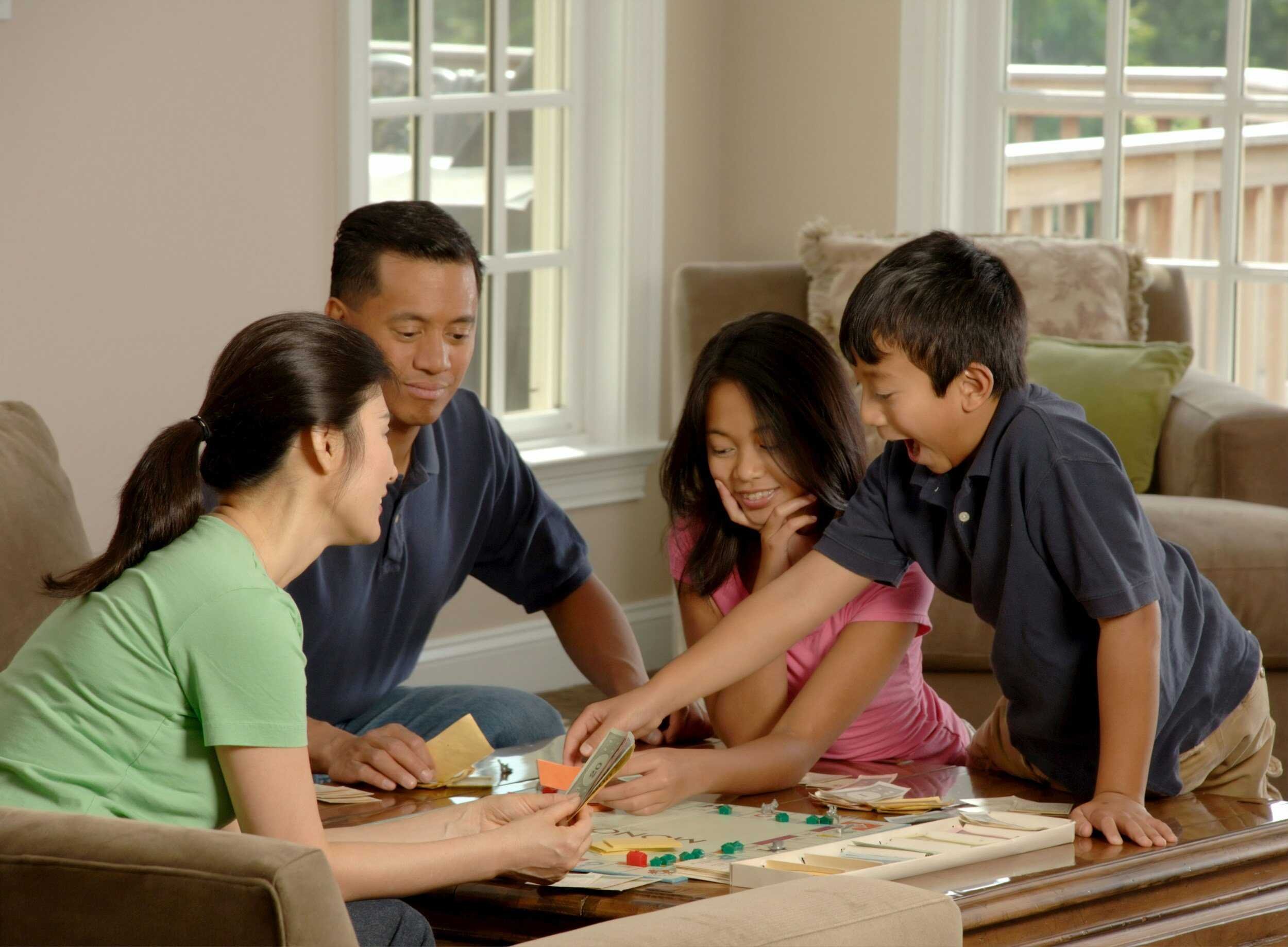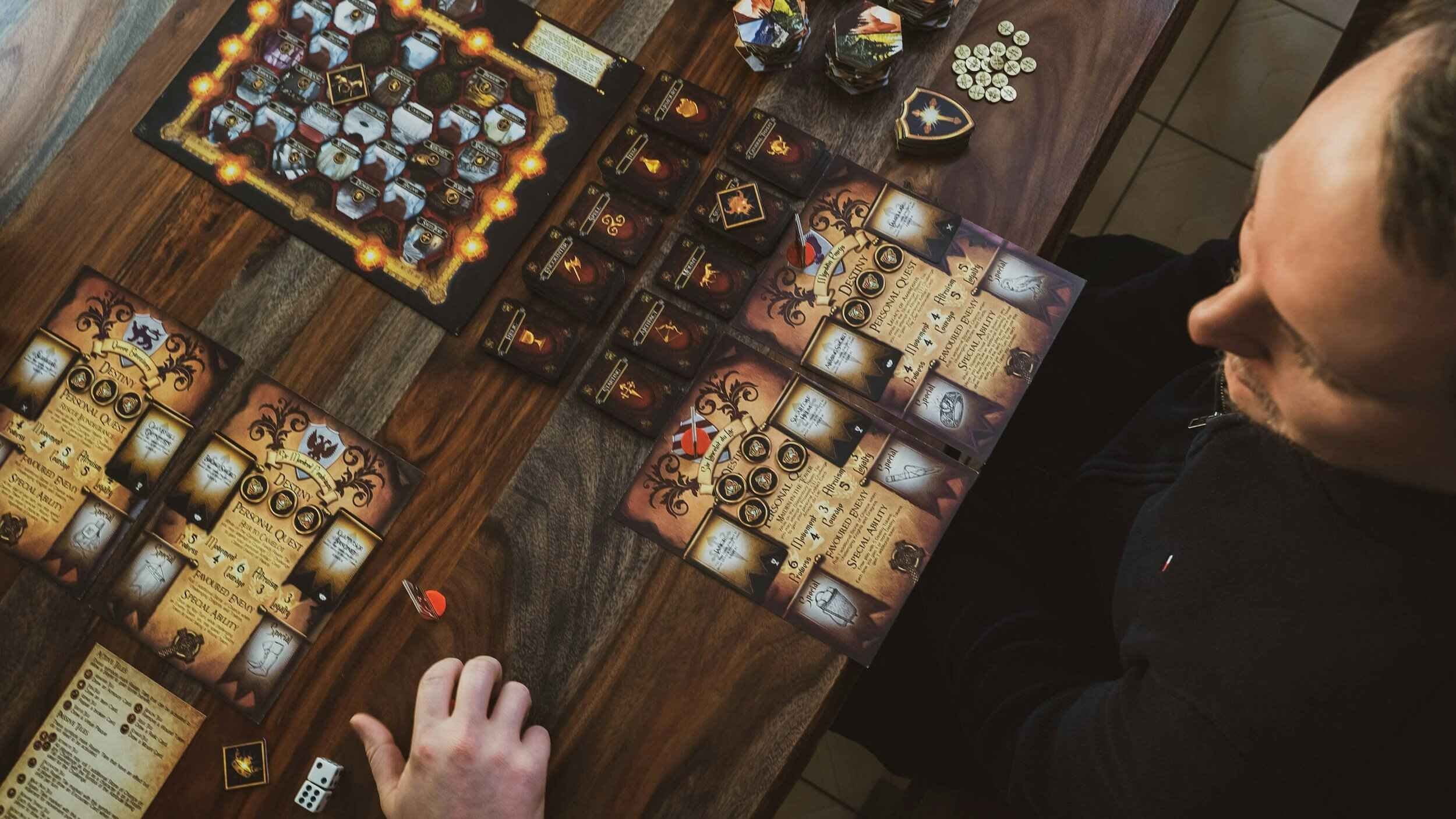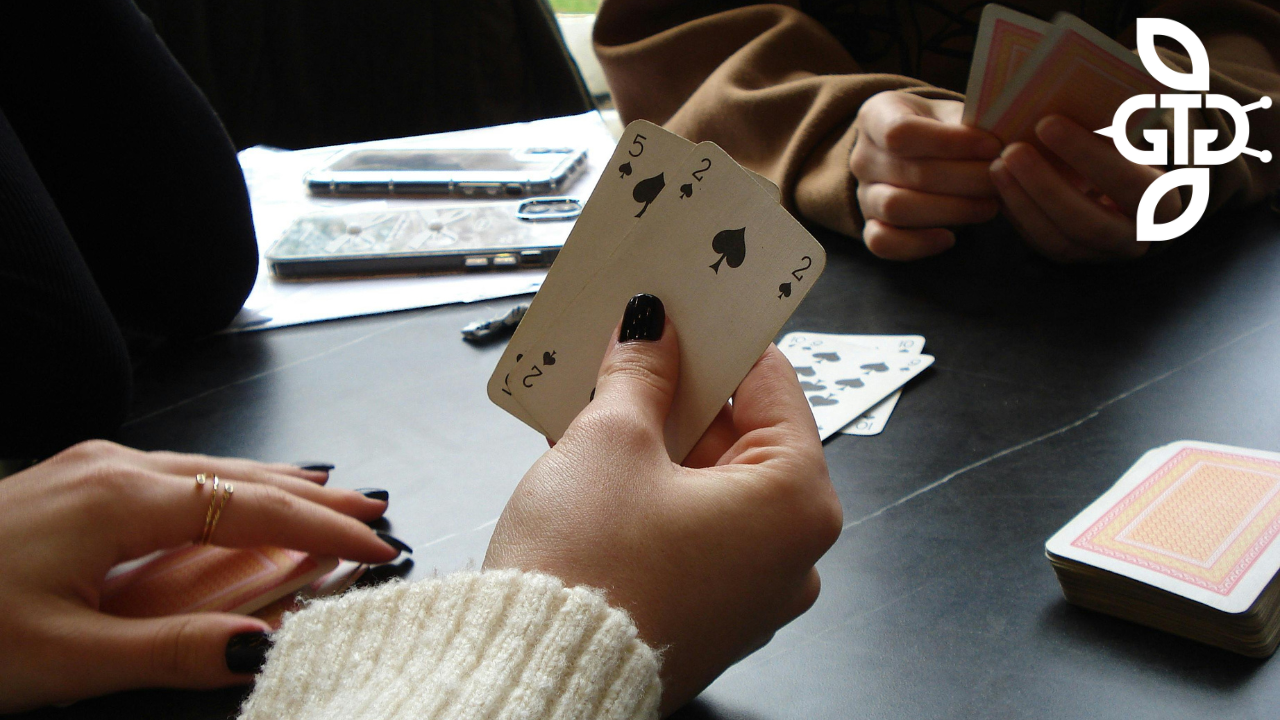Uncovering the Key Benefits of Family Game Night
Discover how hosting a regular Family Game Night can enhance bonding, boost learning, and bring endless fun to everyone at home!
Family Game Night isn't just about playing games; it's a valuable opportunity to strengthen relationships, develop essential life skills, and create cherished memories.
In today’s fast-paced world, dedicating time to unwind and connect with loved ones is more important than ever.
Embracing this tradition can transform your family dynamics, providing a fun, inclusive, and educational escape that benefits everyone involved.
Many people miss out on the benefits of Family Game Night because they struggle to find time in their busy schedules or underestimate the value of unplugging and engaging in face-to-face interactions.
Imagine transforming your typical evenings into unforgettable family bonding experiences—Family Game Night is not just fun, it's a game-changer for your family's happiness and well-being!
Let's explore the wonderful benefits of Family Game Night, each designed to enrich your family life in unique and meaningful ways.
Bonding Time
Social Skills Development
Stress Relief
Educational Benefits
Encourages Teamwork
Inclusivity
Unplugging from Technology
Tradition Building
Healthy Competition
Fun and Entertainment
Bonding Time
Family game night is a powerful ritual for reinforcing family ties, serving as a dedicated time where all members come together, free from the usual distractions of daily life.
In these shared moments, playing games becomes more than just entertainment; it's a bridge to understanding, compassion, and deeper connections.
As each person engages in the fun and challenges, they share experiences, celebrate achievements, and support each other through setbacks, fostering a sense of unity and belonging.
This regular, intentional gathering not only strengthens emotional bonds but also creates a safe, inclusive space where family members can express themselves and feel valued within the family unit.
Consider a family, who implemented a weekly game night to combat the feeling of disconnection they experienced due to their hectic schedules.
Every Thursday, they turn off their devices and gather around the dining room table for an evening of board games.
Through spirited rounds of games like "The Chameleon" and "Mafia" they laugh, strategize together, and occasionally engage in friendly banter.
These game nights have become a cherished tradition, where teenage children willingly participate, sharing stories from their week as they play.
The parents noticed a remarkable improvement in their family dynamics; conversations flowed more freely, and understanding grew.
This simple yet effective ritual can help a family reconnect in ways they hadn't in years, strengthening their bond as a family.
Social Skills Development
Game nights play a crucial role in enhancing communication and empathy among family members by creating a playful and cooperative environment where everyone is encouraged to express themselves and listen to others.
As families navigate the rules and strategies of various games, they must communicate clearly and effectively to collaborate or compete.
This fosters a deeper understanding and patience as each member expresses their thoughts and learns to consider different perspectives.
For instance, during a game of “Cranium” where teammates must guess each other's drawings or acting clues, players naturally develop a greater sensitivity to each other's ways of thinking and expressing ideas.
This interactive setting not only improves verbal and non-verbal communication skills but also builds empathy, as family members experience and respond to each other's emotions, whether it's the joy of a win or the disappointment of a loss.
When selecting games to maximize communication and empathy skills during family game night, consider the following quick tips:
Choose Cooperative Games: Opt for games where players work together towards a common goal, such as "Hanabi" or "Forbidden Island." These games require team members to discuss strategies, make collective decisions, and support each other, enhancing empathetic interactions.
Incorporate Role-Playing Games (RPGs): Games like "Dungeons & Dragons" allow players to step into different characters’ shoes, promoting empathy and creative communication as they navigate the game’s challenges together.
Select Games with a Storytelling Component: Games that involve storytelling, such as "Dixit," encourage players to express themselves creatively and listen attentively to others, fostering both verbal skills and understanding.
Include Games with Non-Verbal Cues: Games like "Charades" or "Pictionary" rely on non-verbal communication, teaching players to interpret and express ideas without words, which can be a fun way to enhance empathy and understanding.
Look for Games with Negotiation Elements: Games that involve trading or negotiation, such as "Catan" or "Monopoly," require players to engage in discussions, offer compromises, and understand different viewpoints, which are excellent skills for fostering better communication and empathy.
Stress Relief
Engaging in fun and laughter during game nights can serve as a significant stress reliever for individuals of all ages.
The act of playing and enjoying games inherently shifts focus away from daily stresses and into a space of lighthearted interaction.
Laughter, a natural outcome of these playful scenarios, triggers the release of endorphins, the body's natural feel-good chemicals, which promote an overall sense of well-being and can temporarily relieve pain.
The camaraderie and shared enjoyment found in game nights can enhance social connections, which are essential for mental health and stress reduction.
This social bonding acts as a buffer against stress and helps participants feel supported and less isolated.
Regular game nights can become an effective and enjoyable strategy for managing stress and enhancing life quality through relaxation and positive engagement.
A study published in The Tohoku Journal of Experimental Medicine reveals the significant benefits of laughter therapy in mental health.
Titled "Therapeutic Benefits of Laughter in Mental Health: A Theoretical Review," it shows that laughter reduces stress hormones like cortisol and impacts mood-regulating neurotransmitters such as dopamine and serotonin.
This non-pharmacological therapy enhances immune function and serves as an effective, accessible treatment option that is gaining popularity in the medical community for its simplicity and efficacy in managing stress and depression.
Educational Benefits
Board games that combine fun with intellectual stimulation are excellent for promoting skills such as strategy and critical thinking.
Games like "Chess" and "Go" are timeless classics that require players to anticipate opponents' moves and plan several steps ahead, enhancing problem-solving abilities.
Modern strategy games like "Ticket to Ride" involve managing resources and strategizing for long-term gains, which are perfect for developing tactical thinking.
Additionally, puzzle-based games such as "Azul" or "Escape Room" games challenge players to think laterally and solve complex problems under pressure.
Each of these games not only provides entertainment but also serves as a mental workout, encouraging players of all ages to sharpen their cognitive skills while engaging in playful competition.
Encourages Teamwork
Cooperative games are vital in teaching teamwork and collaboration, as they require players to work together toward a common goal, often under conditions that simulate real-world challenges.
In games like "Pandemic,” participants must strategize, share resources, and make collective decisions to succeed, mirroring the dynamics of effective teamwork in everyday situations.
These games help players develop crucial skills such as communication, joint problem-solving, and conflict resolution, as they learn to align their individual actions with the group's objectives.
The cooperative nature of these games fosters a sense of community and mutual support among players, highlighting the importance of each member's contributions and teaching the value of achieving success through collaboration rather than competition.
This environment not only enhances social interaction but also reinforces the significance of working harmoniously to overcome obstacles, a lesson applicable both on and off the game board.
Inclusivity
Inclusivity during game night ensures that everyone feels welcome and involved, fostering a sense of community and belonging that enhances the enjoyment and benefits for all participants.
Choosing the right games is crucial to a successful family game night. The perfect game caters to all ages and interests, creating an inclusive environment.
A great starting point can be classic board games like Clue or card games such as Crazy Eights. They are easy to learn, offer strategic depth, and foster competition in a fun way.
Picking Age-Appropriate Games
To make sure everyone gets involved, pick age-appropriate games. For younger kids, simple rule-based games work best.
You could try something like Candy Land which is colorful and engaging for little ones.
Testing New Waters
You might also use this time to introduce new types of games. From role-playing adventures like Dungeons & Dragons to trivia challenges – there’s always something fresh out there waiting.
Remember: What matters most isn't winning but enjoying quality time together.
Unplugging from Technology
Reducing screen time and engaging in face-to-face interaction during family game nights offers numerous benefits, especially in today’s digitally saturated world.
Direct interpersonal communication enhances emotional connections, as participants can read facial expressions, interpret body language, and respond to tone of voice, nuances often lost in digital communication.
This type of interaction is vital for developing strong relational bonds and fostering a sense of empathy among family members.
Time away from screens helps mitigate the effects of digital eye strain and promotes better sleep patterns.
By prioritizing physical presence and personal engagement, family game nights encourage healthier lifestyles and deepen relationships, making these moments invaluable for overall family well-being.
Tradition Building
Establishing a game night tradition introduces a consistent, eagerly anticipated event in the family calendar, offering a regular respite from the daily grind and providing something special that everyone can look forward to.
This regularity helps cultivate a routine that anchors family life, ensuring that no matter how busy schedules may get, there’s a set time for relaxation and togetherness.
The anticipation of game night creates a sense of excitement and joy, fostering a positive outlook among family members.
Moreover, as this tradition grows, it becomes a cherished ritual that not only strengthens familial bonds but also builds a reservoir of joyful memories.
Over time, these memories contribute to a family legacy of shared experiences and stories that can be fondly recounted and passed down through generations.
Healthy Competition
Teaching kids about winning and losing through games is an invaluable part of their development, offering critical life lessons in a controlled and safe environment.
When children participate in games, they experience the thrill of victory and the disappointment of defeat, which helps them develop resilience and emotional regulation.
Understanding how to handle both outcomes gracefully is essential for building character and empathy, as it teaches children to be good sports and compassionate competitors.
These experiences also encourage perseverance, teaching kids that not every loss is a setback but an opportunity to learn and improve.
Navigating the emotions associated with winning and losing helps children develop interpersonal skills that are vital in school, future workplaces, and personal relationships, making gaming a practical framework for teaching broader social and emotional skills.
Fun and Entertainment
Game nights are a cherished activity primarily because they are a source of sheer joy and laughter, bringing light-heartedness and fun into the home.
The spontaneous outbursts of laughter and the cheerful banter that fill the room during these games create an atmosphere of warmth and enjoyment that's contagious.
Such moments of shared happiness are not just entertaining but also deeply bonding, as they allow family members to see each other in a relaxed and joyful setting.
The fun of strategizing together, the suspense of awaiting game outcomes, and the delight in playful competition all contribute to making game nights memorable experiences.
This infectious enjoyment not only elevates the mood of all participants but also solidifies game night as a much-loved tradition that family members eagerly anticipate and reminisce about long afterward.
Tips for Hosting a Successful Family Game Night
Hosting a successful family game night can be as simple as following some basic guidelines.
First, pick games that everyone will enjoy and are suitable for all age groups in your family.
Pick the right environment. Ensure the atmosphere is relaxed and free of disturbances so you can concentrate on having a great time.
Schedule it at a time when everyone is available and energized. It might not always be easy to find this golden hour but aim for consistency – maybe every Friday evening or Sunday afternoon?
Preparation: Set everything up before starting - get snacks ready, clear off the table, have extra pens if needed.
Variety: Keep things fresh by switching between different types of games like board games, card games or even active physical ones.
Inclusion: Ensure each member feels included during gameplay; help younger kids with rules if necessary.
A little planning goes a long way towards creating memorable experiences.
Overcoming Challenges in Organizing Family Game Nights
The biggest hurdle to family game nights can often be just getting them started. It is not always easy, but with some simple strategies, you can overcome these challenges.
Finding a Time That Works for Everyone
Schedules are busy and finding a time that works for everyone might seem impossible. But it doesn't have to be. Start by picking one night of the week where everyone is generally free.
Making Sure Games Are Age-Appropriate
Selecting games that all age groups can enjoy may seem daunting at first glance. Consider using BoardGameGeek's database as your guide to find options suitable for every member of your clan.
Encourage Players to Come Prepared
Almost every game in existence has a rules video on the internet. The Gather Together Games YouTube channel has 300+ video tutorials.
Encourage players to watch the rules video for the selected game(s) before game night. This will ensure you are spending more time playing and less time going over the rules.
Maintaining Interest Levels
A key challenge is keeping everyone interested throughout the game night.
Mix up the types of games you play – card games, board games or active ones like Fishbowl – so there is something different each time.
Managing Competition Amongst Siblings
We all know siblings compete naturally - even during fun times like this. But not every night needs a lesson in good sportsmanship.
Instead, try cooperative games which encourage teamwork rather than rivalry among players.
FAQs in Relation to Benefits of Family Game Night
-
To elevate game night, introduce a variety of games to cater to different interests and skills, include thematic decorations and snacks, and maybe even establish fun rituals or playful prizes for winners to enhance the excitement and engagement.
-
Make game night special by personalizing it to your family's preferences—choose favorite games, prepare favorite snacks, and create a cozy ambiance with comfortable seating and good lighting.
Adding a theme, like a costume or a decade theme, can also make the evening more memorable.
-
Family relationships can be improved by playing games as it encourages communication, cooperation, and understanding among members.
Regular game nights foster a sense of team spirit, reduce conflicts by providing a neutral ground for interaction, and create joyful shared experiences.
-
Games are crucial for children’s development because they help teach critical thinking, problem-solving, and decision-making skills.
Additionally, games can improve hand-eye coordination, foster social skills like sharing and negotiating, and boost language and number proficiency through playful learning.
-
Family games encourage healthy development by promoting social skills, emotional intelligence, and cognitive abilities.
They offer a fun and engaging way for children to learn rules, develop patience, take turns, and face wins and losses gracefully, all of which are important for their overall growth.
-
Family game nights nurture bonds, spark conversations, and build shared memories. They also bolster children's social skills and critical thinking abilities.
-
Playing games together fosters communication, reduces stress levels, and enhances problem-solving skills in both kids and adults alike. It can be a fun learning experience too.
-
Beyond just having fun, family nights help create strong emotional connections within the household while also boosting self-esteem in children through participation and achievement.
-
The main aim is to bring everyone closer with laughter-filled interactions while indirectly honing various life skills like strategic thinking or teamwork through gameplay.
Family Game Nights for the Win
Family game nights can be a powerful source of togetherness, learning and joy. They boost children's confidence and foster critical thinking skills.
The benefits of family game night don't stop there. These gatherings improve communication among family members while reducing stress levels after a long week.
With patience and creativity, you will host successful game nights that everyone looks forward to.
Embrace the challenges of organizing these events because the rewards far outweigh them!
DISCLAIMER: This page contains affiliate links, which means that if you click on one of the product links, I’ll receive a small commission at no extra cost to you. Thank you for your support!

















